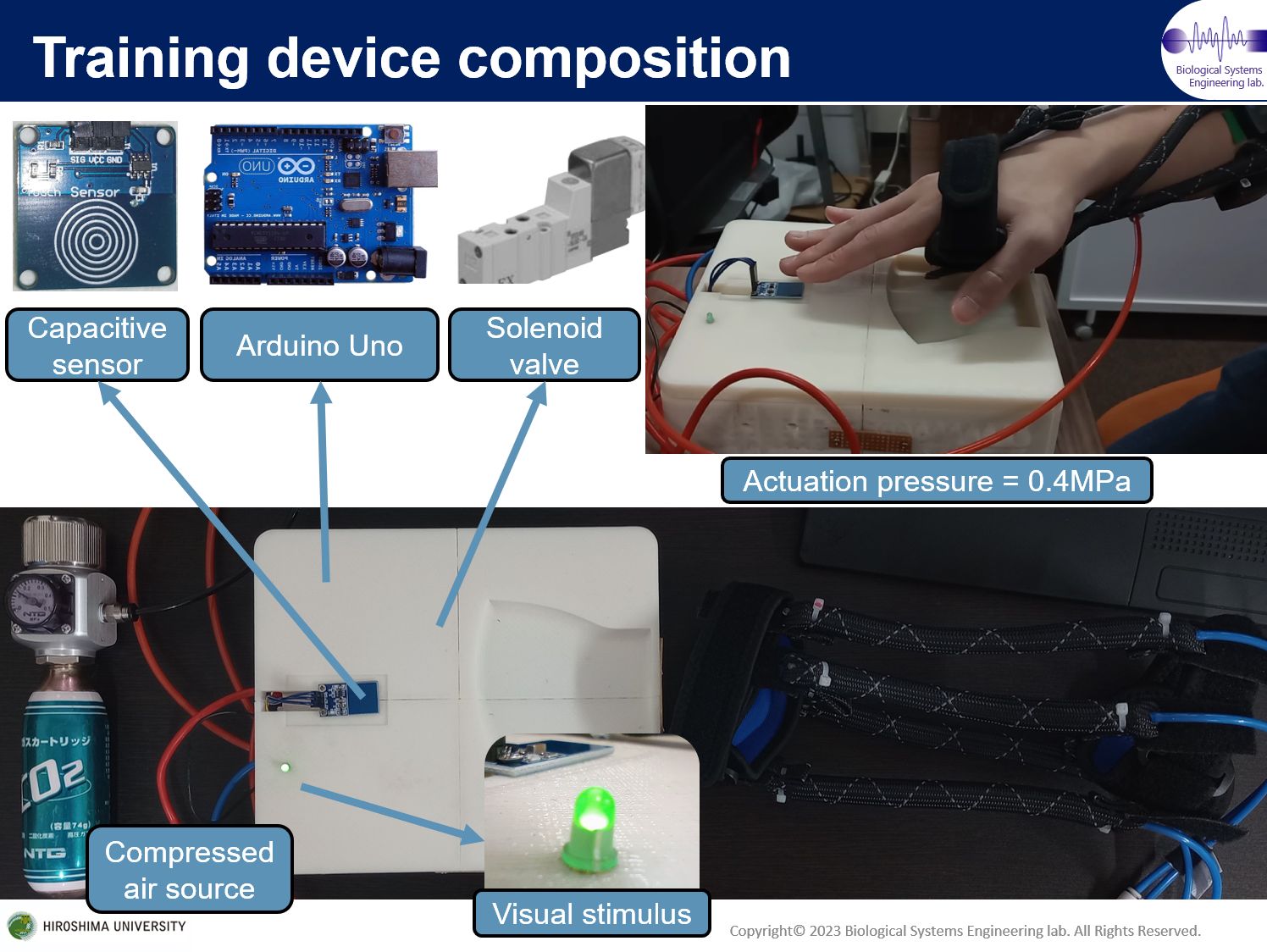Yuichi Kurita, Biological Systems Engineering Lab.
RAPID: Reaction time Acceleration PGM-based Improvement Device
Enrique Sastre Calderon (2023年9月博士前期課程修了)
Many activities performed frequently in daily life can be modeled as simple ReactionTime (RT) tasks, such as touching a screen, taking a photograph, hitting thecar brakes while driving, or start running when a race starts. By reducing this reactiontime, we could improve the performance in those tasks. In this context, HumanAugmentation devices are useful to achieve an improvement in such duties throughtraining. Despite the usefulness of Human Augmentation devices for skill acquisition andimprovement, many of the current training devices use bulky rigid structures in theexoskeletons to assist the training, which hinders the adoption of these devices dueto discomfort issues. In a similar way to User Interfaces, it is important that the userfeels he/she is the one doing the action even during training. Sense of Agency (SoA)is the feeling of being in control of the generation and control of one’s actions, andthrough them, the consequences and course of events in the external environment. SoA impairments are often related to pathologies like Schizophrenia and Psychosis. Pneumatic Gel Muscles (PGM) are a special type of Pneumatic Artificial Muscles. These soft actuators, due to their design and construction, can operate with low pressures,removing the necessity of heavy compressors to actuate them, which makesPGMs ideal for wearable purposes. PGMs have proved to help impart dexterity trainingtasks, and also, the soft properties of PGM allow a more natural and less restrictedtraining. The present work presents the significance, design, and evaluation of a noveltraining device capable of accelerating simple reaction time by utilizing PGM fortraining while preserving the users’ sense of agency. The device and training parameterswere evaluated by means of two experimental studies. The first study isabout the evaluation of PGM training effectiveness for RT acceleration and Sense ofAgency. Once these two fundamental properties were assessed, a second study wasperformed with to evaluate the PGM-training in terms of muscle fatigue assistanceand gain preservation across the time.



